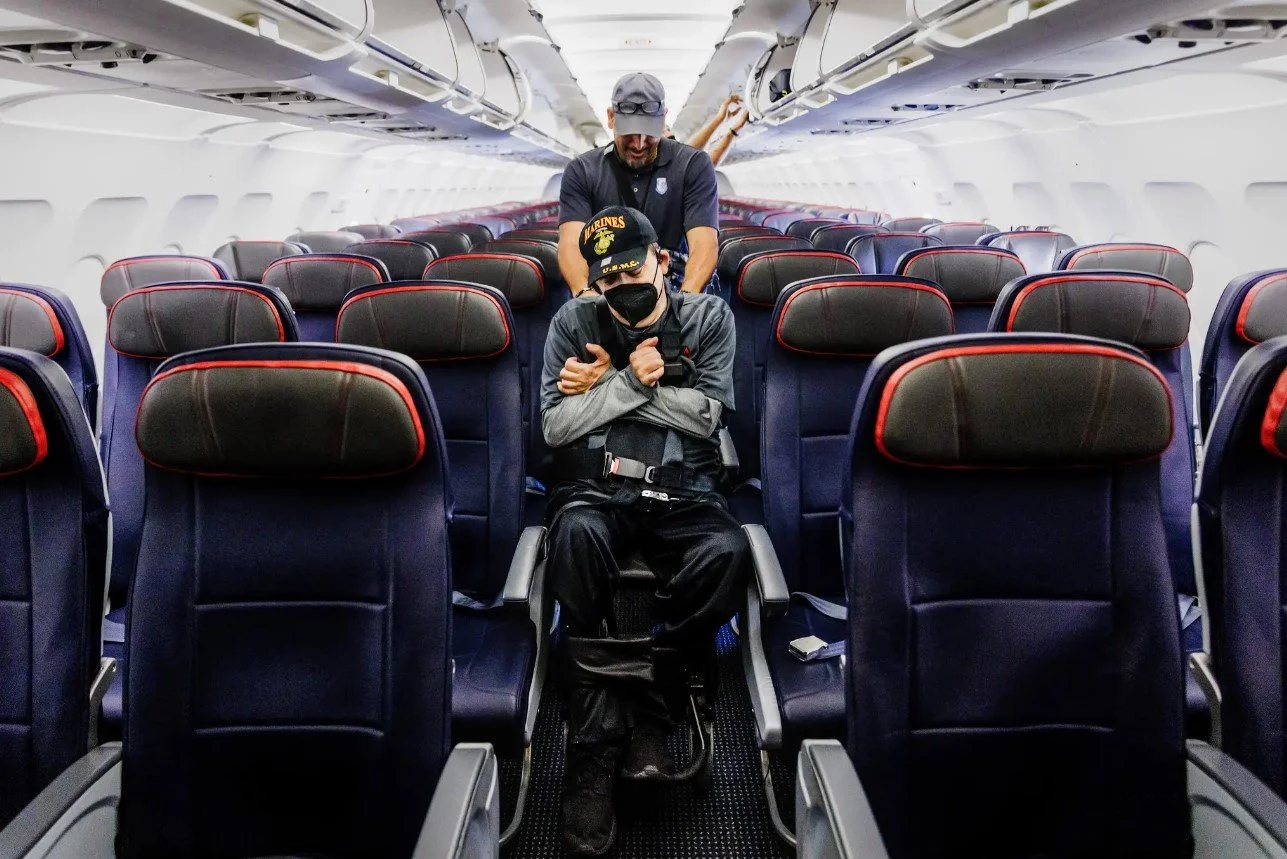New U.S. Rule Ensures Compassionate Access to Airplane Bathrooms for People Using Wheelchairs
Traveling should be an exciting and enriching experience for everyone, but for people with disabilities, it often comes with unique challenges. On July 27, 2023, the U.S. Department of Transportation took a significant step towards improving air travel accessibility for individuals using wheelchairs by mandating easier access to airplane bathrooms. Under the Air Carrier Access Act, airlines are now required to make lavatories on new single-aisle aircraft spacious enough to accommodate a passenger with a disability and an attendant, ensuring they can move comfortably within the lavatory.
This new rule comes as a beacon of hope for millions of wheelchair users who have faced difficulties in accessing restroom facilities while flying. U.S. Transportation Secretary Pete Buttigieg empathetically addressed this issue, acknowledging the stress and challenges that come with traveling for people with disabilities. He stated, "Traveling can be stressful enough without worrying about being able to access a restroom; yet today, millions of wheelchair users are forced to choose between dehydrating themselves before boarding a plane or avoiding air travel altogether." This compassionate rule seeks to put an end to such hardships, ensuring that travelers in wheelchairs are granted the same access and dignity as any other member of the traveling public.
But that's not all the Department of Transportation has in store. As part of their commitment to enhancing accessibility in transportation, they have unveiled additional measures aimed at improving the overall experience for people with disabilities. This includes modernizing airport terminals, incorporating wheelchair ramps, and providing accessible restrooms to facilitate a seamless travel experience. Additionally, they are allocating funds to improve access in train and subway stations, making rail systems more reliable for individuals using wheelchairs, strollers, or those who find stairs challenging to navigate within their communities.
Looking ahead, the Department of Transportation is laying the groundwork for a future rule that will allow passengers to remain in their own wheelchairs when they fly, enhancing comfort and convenience during air travel. Furthermore, they are calling for better training for airline staff to assist passengers with disabilities, ensuring that individuals with battery-powered wheelchairs or scooters receive the support they need.
These measures not only reflect a commitment to inclusivity and compassion but also demonstrate a dedication to creating a travel experience that celebrates diversity and removes barriers for individuals with disabilities. By fostering an environment that is accommodating and supportive, the Department of Transportation is paving the way for a more accessible future of air travel, one where every passenger can embark on their journey with confidence and joy.
As we celebrate these progressive steps towards a more inclusive world, let us recognize the significance of these new rules and their potential to transform the travel experience for millions of individuals. By prioritizing compassion and accessibility, we move towards a brighter, more unified future where everyone can explore the world with equal ease and freedom.

